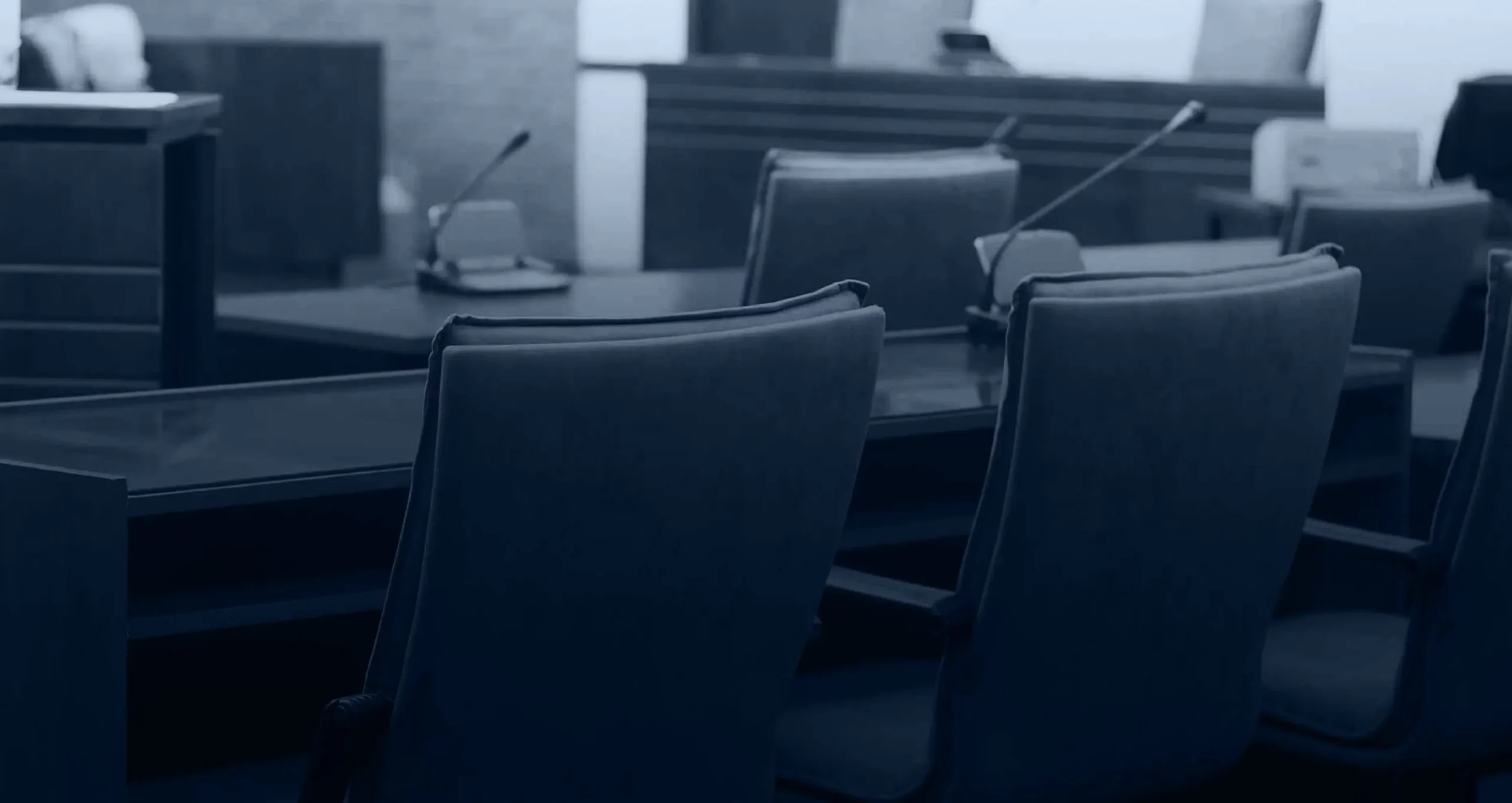People often sustain traumatic brain injuries (TBIs) from accidents or medical malpractice. These injuries can impact how a person behaves and thinks, potentially leading to personality changes and permanent cognitive deficiencies. Often, victims of TBIs are unable to work in the same capacity they once could, or they may be unable to return to work entirely due to permanent disability.
After a TBI, the experienced Wheaton traumatic brain injury lawyers at Zayed Law Offices Personal Injury Attorneys can help victims recover the compensation they deserve.
How to Determine if You Have a Brain Injury Case in Wheaton

A few key factors can help determine whether an individual has a viable traumatic brain injury case. These include:
Negligence Took Place
A traumatic brain injury case will involve negligence that occurred, which entails a person or entity breaching a reasonable car of duty that is in place to prevent harm to individuals. This could include providing inadequate medical care, failing to maintain a safe area to minimize the risk of accidents, and other forms of negligence.
Negligence Caused the Brain Injury
Before victims can build a brain injury case, they also need to prove that the negligence that took place is directly responsible for the brain injury. For example, a driver’s negligence may cause an accident that directly results in a TBI, in which case direct causation would provide grounds for a viable case.
Victims Sustained Damages
Evidence must prove that the TBI resulting from another party’s negligence led to quantifiable damages. These can include medical expenses, lost wages and earning capacity, and pain and suffering sustained.
If you are not sure whether you qualify to recover compensation, the attorneys at Zayed Law Offices Personal Injury Attorneys can help you determine whether you have a viable case.
Who Is Liable for Traumatic Brain Injuries in Wheaton?

If you suffered a brain injury because of another party’s negligence, you might be able to seek compensation for the damages sustained by filing a claim or lawsuit.
In these cases, one or more of the following parties may be liable for a brain injury resulting from negligence:
- Vehicle drivers – Negligent drivers could be liable for damages if they caused an accident involving cars or other vehicles.
- Property owners – These individuals must maintain a safe environment on their property. Failure to do so could cause TBIs and other injuries and make them liable for damages.
- Medical professionals – Medical malpractice could cause certain degrees of brain damage and TBIs, making negligent medical professionals responsible for these injuries.
- Manufacturers – In some cases, manufacturers may be liable for brain injuries by producing defective products that cause them through faulty design or construction.
- Employers – In the event of a work-related brain injury, an employer’s negligence may contribute to the accident that causes the injury. A workers’ compensation insurance policy may help cover the costs of medical expenses and lost wages in these cases.
The Costs of Traumatic Brain Injuries
Traumatic brain injuries often result in various costs, many of which pertain to the treatment that victims need to receive to recover as much as possible.
Some of the types of medical care involved in these cases include:
- Surgery
- Medication
- Emergency medical care
- Imaging procedures such as CT scans, MRIs, and X-rays
- Rehabilitation and physical therapy
- Intensive care
- Ongoing treatment
- Long periods of convalescence
The expenses involved in these cases can climb to as much as hundreds of thousands of dollars, depending on the extent of the injury and the treatment required to help reach maximum medical improvement. This could eventually lead to millions spent throughout the victim’s life, particularly if victims are young when they sustain the injury and require ongoing treatment for the remainder of their lifetime.
Often, these injuries are debilitating to the point where individuals can no longer work and earn a living, in which case they will be unable to pay for their treatment. As a result, the families of these individuals must provide care or admit them to assisted-living facilities to receive proper care.
The Types of Damages Involved in Wheaton Traumatic Brain Injury Cases
Traumatic brain injury cases in Wheaton can lead to compensation for economic, non-economic, or punitive damages.
Economic Damages in TBI Cases
Economic damages, or special damages, involve easy-to-calculate expenses that come with a specific bill.
Some potential economic damages in these cases include:
- Medical expenses
- Lost wages resulting from the inability to work
- Lost earning capacity due to disability
- Ongoing treatment
- Rehabilitation
- Counseling
Pain and Suffering and Other Non-Economic Damages
While many expenses are easy to determine in TBI cases, other aspects can be more challenging to quantify. Non-economic damages often factor into brain injury cases, but these can be more difficult to calculate because of the lack of a specific dollar amount attributed to them.
TBI victims may sustain:
- Pain and suffering
- Loss of enjoyment of life
- Loss of consortium
Many victims frequently experience varying degrees of pain and suffering because of a brain injury.
Some of the many physical issues regarding pain and suffering could include:
- Chronic headaches
- Nerve damage
- Back and neck pain
- Paralysis
- Herniated discs
- Vision problems
Additionally, victims may suffer from certain cognitive and behavioral issues because of their injuries, which are often challenging to manage and treat.
In these cases, emotional suffering could involve:
- Cognitive difficulties consisting of a variety of debilitating symptoms
- Insomnia
- Depression and anxiety
- Memory problems
- Difficulty with emotional regulation, potentially causing the victim to exhibit inappropriate social behavior or outbursts
- Diminished quality of life
- Post-traumatic stress disorder (PTSD) resulting from the initial accident that caused the injury
Ultimately, TBI victims often experience many types of pain and suffering that could contribute to the amount of compensation they qualify to receive.
Punitive Damages
In addition to economic and non-economic damages, some cases could involve punitive damages. Unlike damages that compensate victims, the court awards punitive damages to punish defendants. To qualify for punitive damages, a case must involve gross negligence. Punitive damages help ensure that the same defendant and other parties do not commit the same acts.
Calculating the many potential damages involved in brain injury cases can be difficult, but the qualified brain injury lawyers in Wheaton at Zayed Law Offices Personal Injury Attorneys will be able to help determine the total amount of compensation recoverable.
How a Wheaton Traumatic Brain Injury Attorney Can Help
Following an accident or medical malpractice incident that leads to a brain injury, victims or their loved ones should consult a trusted brain injury attorney to discuss a potential case.
Qualified lawyers can help determine what type of compensation victims can recover and negotiate with insurance companies on their client’s behalf, which gives victims the ability to focus primarily on recovering.
Additionally, brain injury victims will benefit from working with attorneys in several other ways. A lawyer can hire experts to help prove liability in these cases, including medical professionals, industry experts, and investigators.
The team of lawyers at Zayed Law Offices Personal Injury Attorneys has plenty of experience in handling these types of cases and can work to determine how much you may be able to recover in a free consultation.
Traumatic Brain Injury FAQs
If you have additional questions about traumatic brain injury cases in Wheaton, the following are some frequently asked questions and answers regarding this topic.
How Much Time Do I Have to File a Traumatic Brain Injury Lawsuit?
The time individuals have to file a lawsuit following a traumatic brain injury depends on the statute of limitations in the state where the case takes place. In Illinois, the statute of limitations is two years following the initial accident.
Exceptions to the Illinois statute of limitations include:
- If the injured party is under the age of 18, the two-year time period would not start until the individual turns 18. However, the victim’s parents or other legal guardians may be able to file a claim or lawsuit on the victim’s behalf in these cases.
- If the alleged liable party leaves the state at any point after the accident and before the victim has a chance to file a lawsuit, the two-year statute may not apply to this period of absence.
- If injured parties come under a legal disability following an accident and before it is possible to file a lawsuit, this will lead to an extension of the statute of limitations.
- If the injured party is under a legal disability at the time of the accident, the victim will have two years to file a lawsuit after the removal of this disability.
What Do I Do After Suffering a Traumatic Brain Injury?
Following an accident that results in a traumatic brain injury, there are certain steps that victims and their loved ones should take to initiate the recovery process and increase the chances of succeeding with a brain injury case. The first step to take is to seek medical attention as soon as possible, regardless of the severity of the brain injury. TBIs are often difficult to diagnose because these injuries are not immediately visible, but untreated brain injuries can lead to long-term and potentially permanent physical and cognitive damage.
After an accident, look for alarming changes in victims’ mood, speech, behaviors, or other brain injury symptoms. When seeking treatment, victims should document appointments, the amount of time missed from work, prescriptions, and witness statements if available.
It is also best to consult with a qualified brain injury attorney to discuss a potential case as soon as possible. Make sure the attorney has experience handling similar cases and ask about any previous successes. If an attorney chooses to take on your case, they can help obtain and organize evidence to support it, giving victims and their loved ones the chance to focus on the recovery process.
What Is the Cost of Hiring a Traumatic Brain Injury Attorney?
Most personal injury attorneys, including those who handle traumatic brain injury cases, charge on a contingency fee basis. This means that they would not charge clients until they have succeeded with a case and recovered a settlement.
After the victim receives their settlement, the attorney will subtract a portion of it to cover legal fees and other pertinent expenses, enabling the client to keep the rest of the settlement. If the attorney cannot succeed with a case, they will not charge their clients.

Consult Our a Wheaton Brain Injury Lawyers Today
If you or a loved one has sustained a brain injury due to negligence in Wheaton, you may qualify for compensation with the help of an attorney.
At Zayed Law Offices Personal Injury Attorneys, we can determine your options during a free consultation. If we decide to handle your case, we will work with you to recover the compensation you deserve. For a free consultation with us to find out what our attorneys can do for you, call us at (630) 690-1919 or contact us online today.





